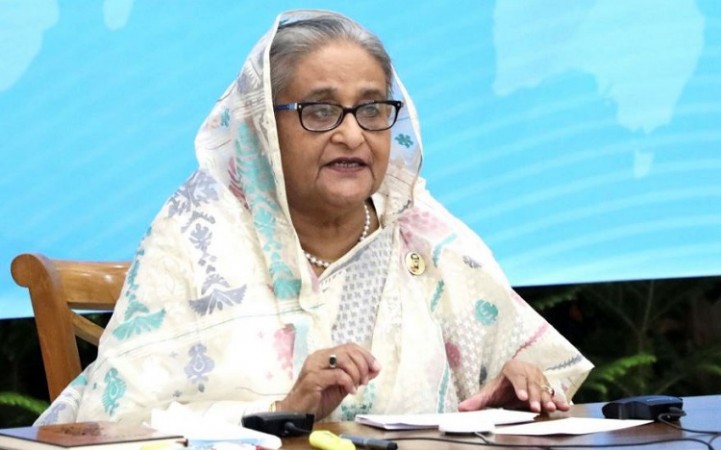
Bangladesh is gearing up for its upcoming elections set to take place this Sunday, raising speculation about Prime Minister Sheikh Hasina Wazed securing an unprecedented fourth consecutive term in office. However, these elections are shadowed by the absence of the main opposition party, BNP, which has opted out citing violence concerns and announced a 48-hour nationwide strike.
With a staggering 119.6 million registered voters eligible to cast their ballots at more than 42,000 polling stations, this election sees participation from a notable number of candidates - over 1,500 representing 27 political parties, along with 436 independent candidates. The Election Commission is on high alert, overseeing the process with the supervision of more than 100 foreign observers, including a delegation from India.
Forecasts predict Prime Minister Sheikh Hasina's ruling Awami League securing yet another victory, bolstered by the absence of the Bangladesh Nationalist Party (BNP) led by former premier Khaleda Zia, who is currently under house arrest and has chosen to boycott the polls due to corruption allegations.
In an attempt to maintain constitutional stability, Prime Minister Sheikh Hasina, 76, urged political parties to uphold democratic principles, discouraging disruptive behaviors.
Conversely, the Bangladesh Nationalist Party (BNP) has declared a 48-hour nationwide strike set to start on Saturday, aligning with their stance against the current government's legitimacy.
Highlighting the boycott strategy, BNP spokesman Ruhul Kabir Rizvi emphasized their demands for the resignation of the incumbent government, the establishment of a neutral non-party administration, and the release of detained party members.
The run-up to the elections saw the incumbent government taking drastic measures, including the arrests of numerous opposition politicians and supporters, a move criticized by human rights organizations as an attempt to weaken the opposition.
Prime Minister Hasina defended her government's track record, citing past achievements in fostering economic and social development within the nation.
Amidst preparations for the elections, the authorities have deployed military personnel across the country to aid civil administration in ensuring peace and order during the voting process.
Despite stringent security measures, incidents of homemade bomb attacks and arson at several polling centers in four administrative districts, along with clashes between BNP activists and the police in another district, marred the run-up to the elections, resulting in injuries to five individuals.
The nation eagerly awaits the results, expected to be announced early on January 8, as the electoral fate of Bangladesh hangs in the balance amidst these tumultuous circumstances.
Bangladesh Gears Up for General Elections Amid Heightened Security Concerns